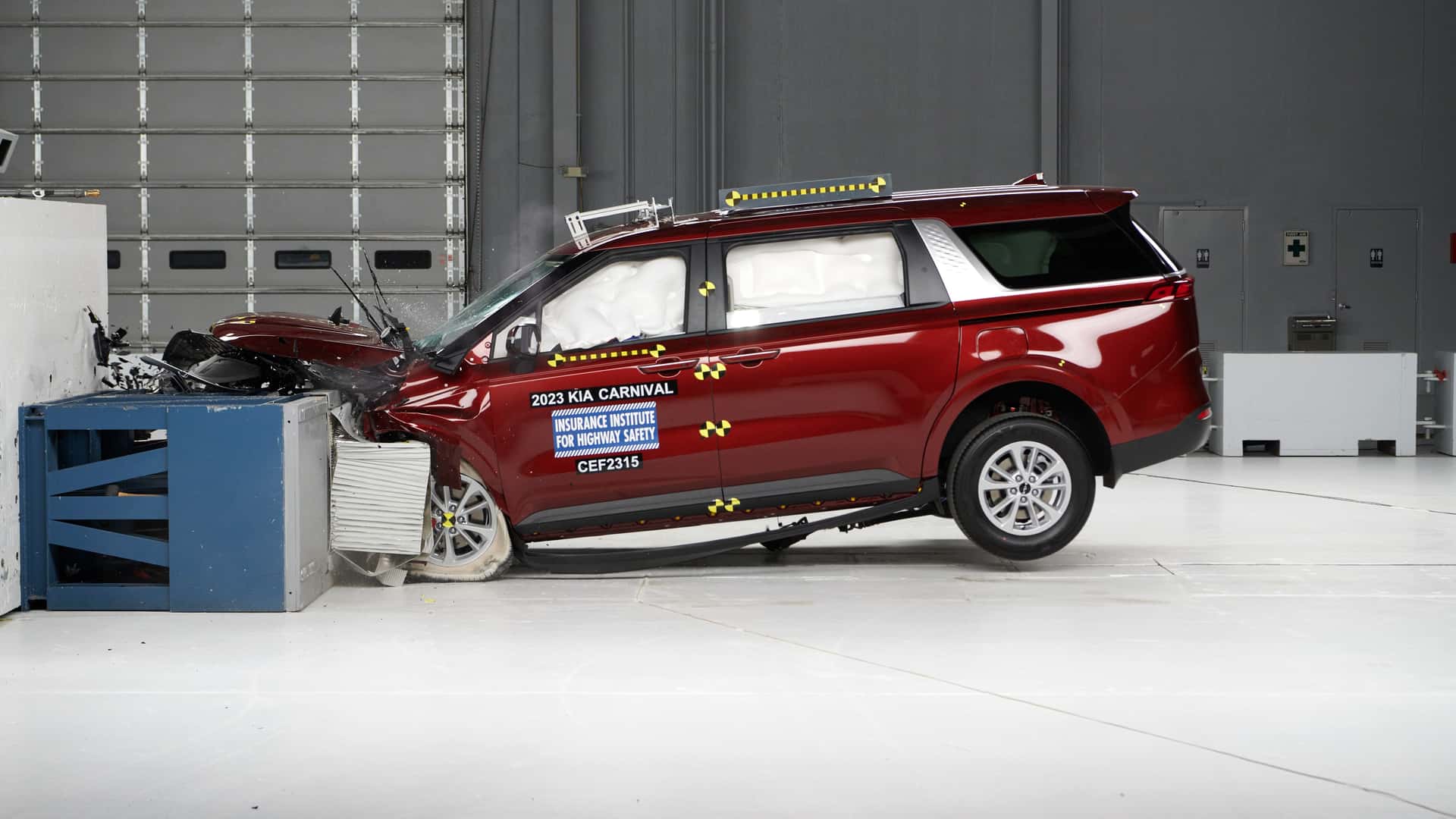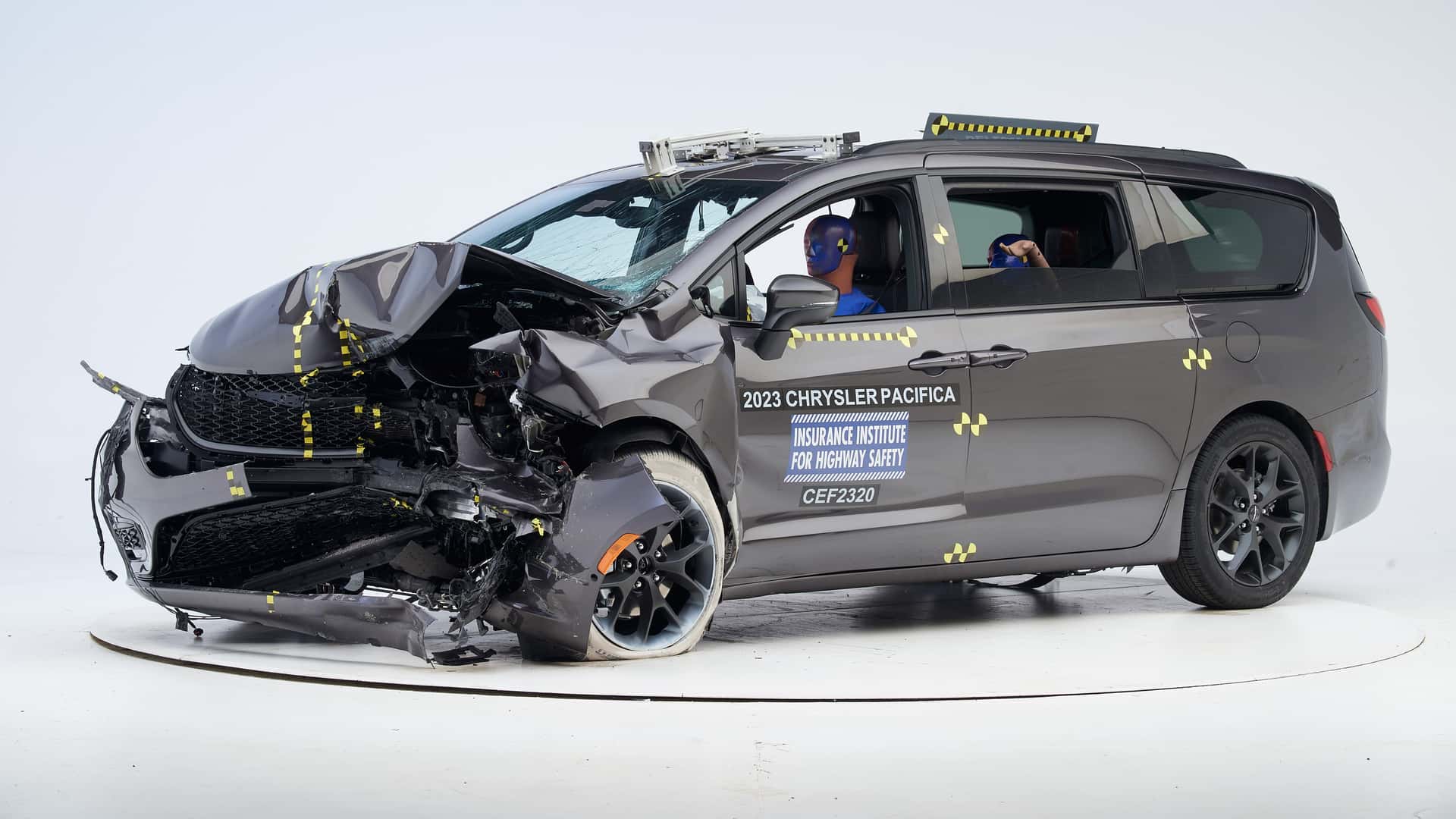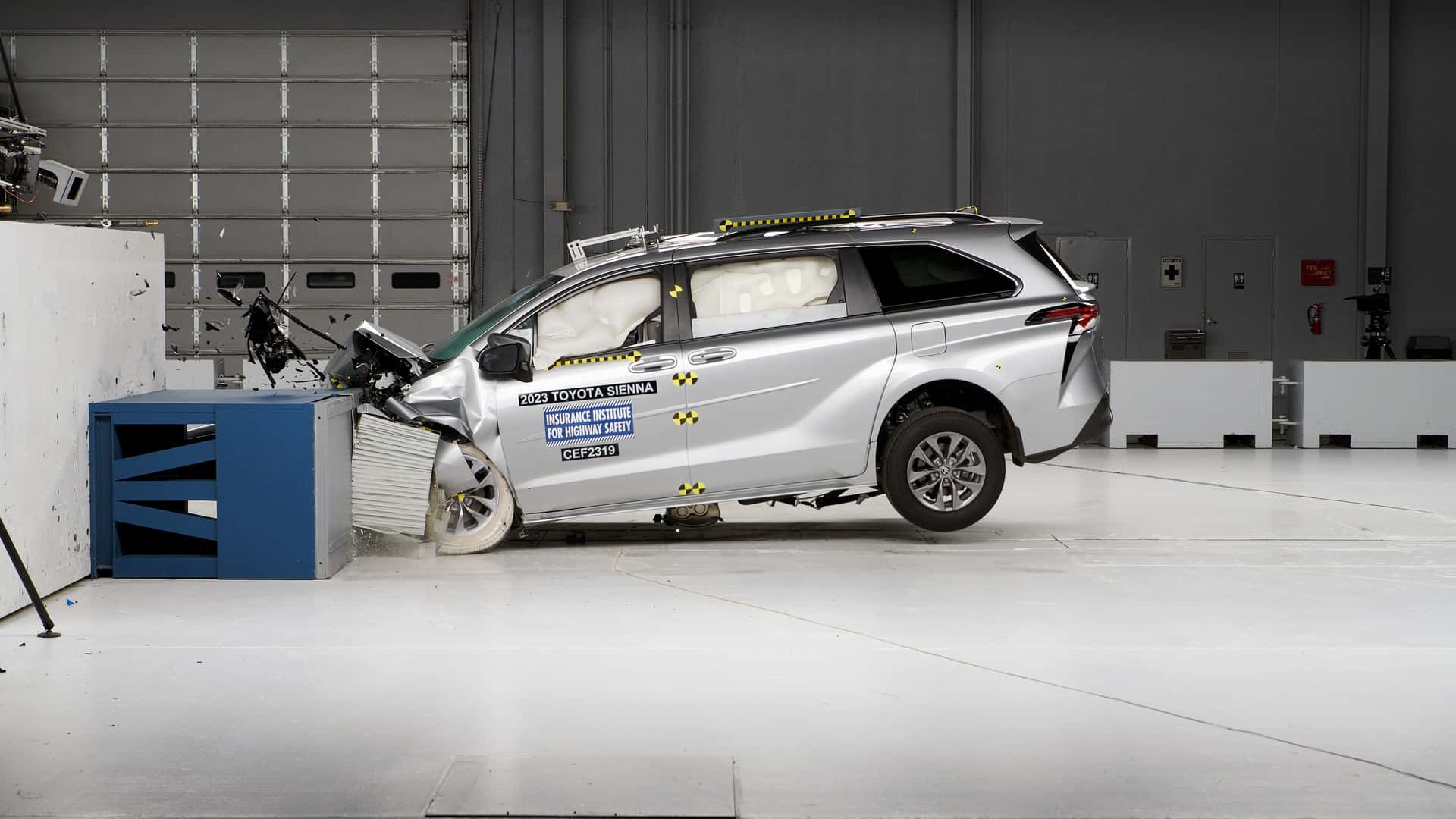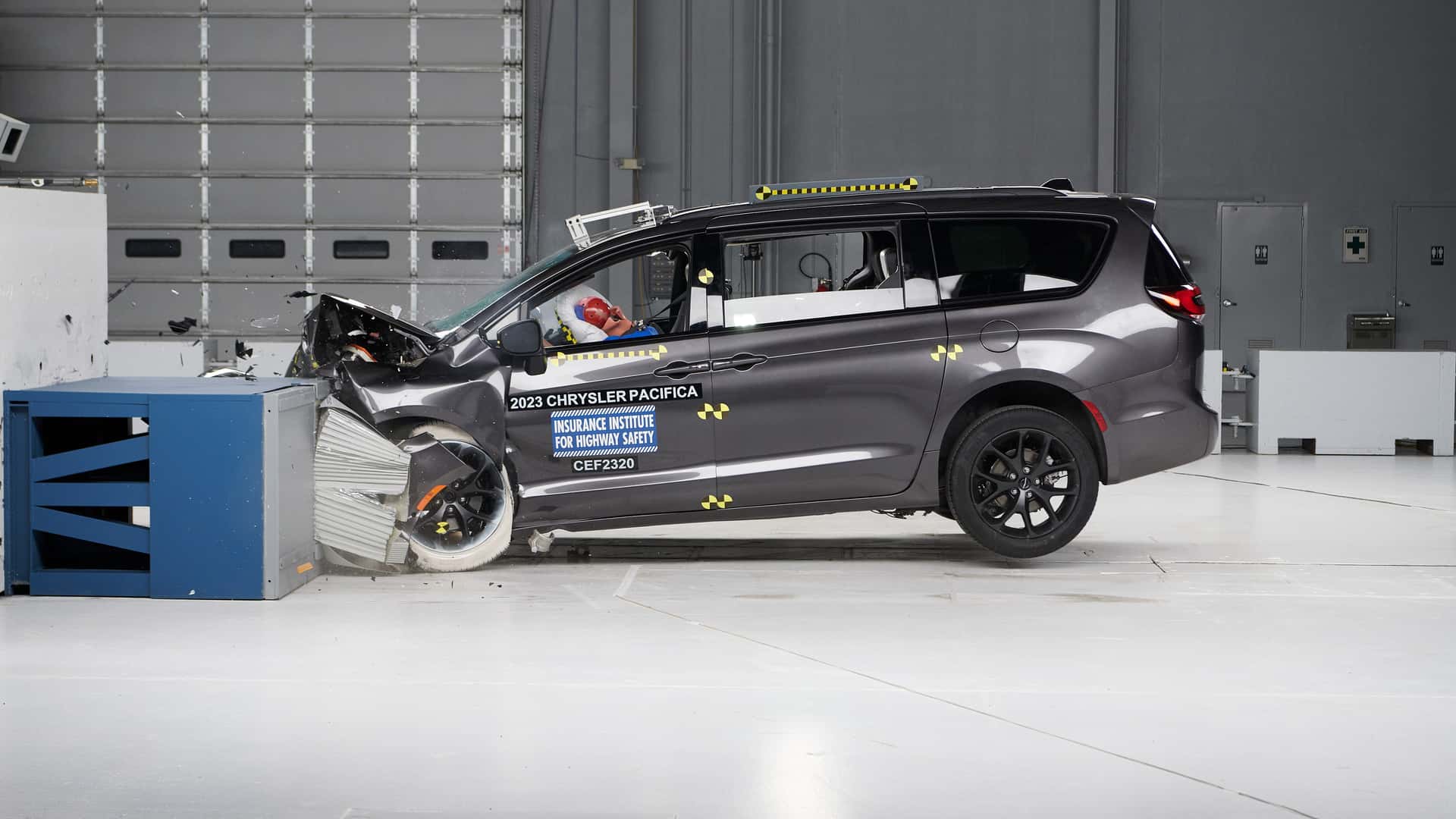Although minivans are popular with older purchasers, their core market is parents who use incredibly versatile cars to transport their children to various activities, school, and family road vacations.
Most parents want to drive the safest vehicles they can afford, which probably goes without saying, and most likely believe minivans are good options.
What product targeted at families could not be? So, the Honda Odyssey, Chrysler Pacifica, Toyota Sienna, and Kia Carnival are the four minivan models still on the market in America, according to a new test created by the Insurance Institute for Highway Safety (IIHS). The outcomes weren’t exactly fantastic.
In the IIHS’s moderate overlap frontal impact test, none of the four minivans received a grade considered passing, either an acceptable or good rating.

Instead, they received a “moderate” or, in the case of the Honda, a “poor” rating for rear-seat safety, which assesses the amount of head movement and impact forces on dummies in the second-row seats.
In light of improvements in front-seat safety over time, IIHS recently altered its rear-seat testing processes, which is why these new scores are now available. As stated by IIHS, this isn’t because the back seats became “less safe” because data indicated that the risk of fatal injury in a crash was now higher in the rear seat than in the front.
Simply put, they are currently less secure than the front seats. In the test, a dummy roughly the age of a 12-year-old is buckled up in the back seat, and IIHS uses sensors to assess the risk of harm during the collision. As per IIHS:

“According to the second-row dummy’s findings, there must be an excessive danger of head, neck, chest, or thigh injuries for a vehicle to receive a satisfactory rating. The dummy should not “submarine” or slide forward behind the lap belt, which increases the risk of stomach injuries during the collision.
The shoulder belt should stay on the shoulder, where it is most effective, and the head should remain safe from the front seatback and the rest of the inside of the car. The position of the shoulder belt during the crash is checked using a pressure sensor on the torso of the rear dummy.”
The minivans performed poorly across the board but poorly in the belt positioning test. According to IIHS Vice President of Vehicle Research Jessica Jermakian, “The restraint systems in all four vehicles leave the second-row occupant vulnerable to chest injuries, either due to excessive belt forces or poor belt-positioning,” adding that this is worrisome because such injuries may be fatal.

To be clear, the driver’s safety was rated highly for each of the four minivans. However, the backseat passengers received mixed ratings. The Pacifica’s side curtain airbag did not activate, and the Pacifica and Carnival applied too much force to the occupant’s chest during the collision.
The Sienna’s back seat passengers submarined from under their lap belts (the industry phrase). The neck, head, and chest of the passenger in the back seat of the low-scoring Honda were subjected to considerably greater stresses.
So, parents considering minivans should know they could use some safety improvements. We couldn’t have said it better than IIHS, which states, “Parent-friendly minivans should have the safest second-row seating on the market.”

